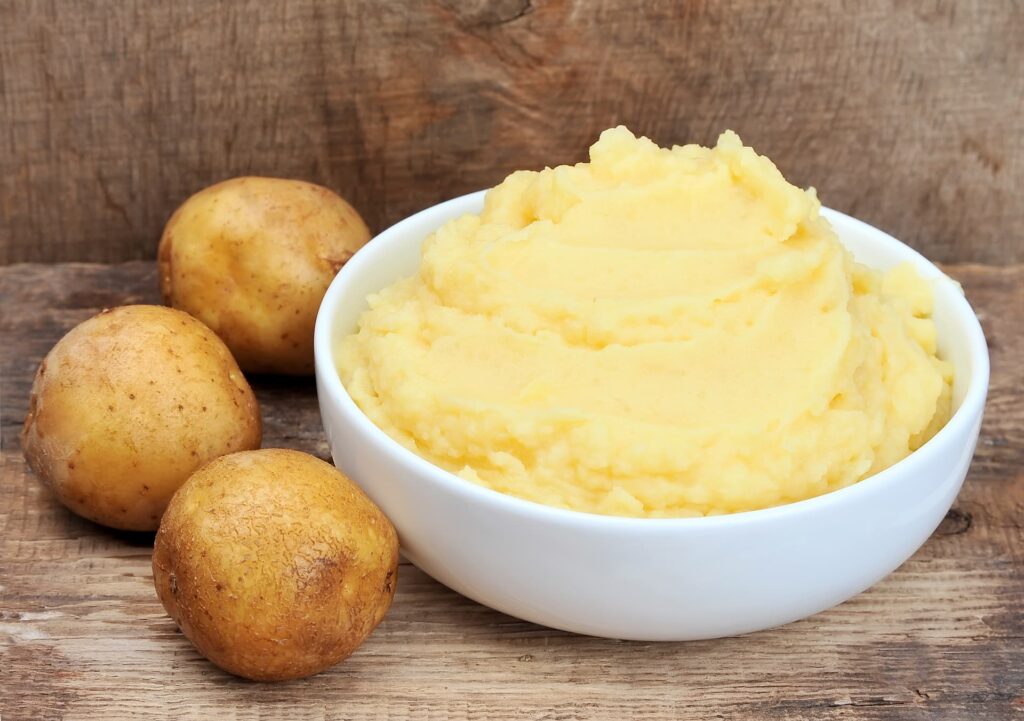Reviving your old smile is as easy as a couple of implants. Okay, so maybe it’s more complex than that, and while the implant can be quick, healing can take some time.
But do you want to know a secret? Healing from dental implant surgery is easier than it seems, and it starts with your diet. Let’s take a look.
The First Few Hours After Surgery
The first few hours after surgery will most likely be the most uncomfortable as painkillers wear off and your mouth gets used to the new implants.
These artificial teeth are typically made up of titanium (a strong and biocompatible material that fuses with the natural bone in the jaw) and make up a secure and stable foundation for your newly completed smile.
As we’ve mentioned, the initial few hours post-implant surgery may be the most uncomfortable. To lessen the discomfort, you need to pay attention to your diet and maintain proper nutrition after dental implant surgery.
Focus on soft foods like mashed potato, soups, stews, and even ice cream during the first few hours after surgery.
But that’s just the tip of the iceberg, so let’s take a closer look at the type of foods you should focus on after your implant surgery.
Soft Foods to Eat After Dental Implant Surgery

Do you want to lessen the discomfort after your surgery? Then stick to soft foods so the implant site can have time to heal before being exposed to hard foods.
The first 48 hours will be the most tender, so you should stick to foods like mashed potatoes, soup, ice cream, smoothies, and yogurt. Once the tenderness begins to subside, you should stick to soft foods for the next few days. Here’s a more comprehensive list for you.
Stock up on the following soft foods:
- Mashed potatoes
- Cooked vegetables
- Scrambled eggs
- Oatmeal
- Yogurt
- Soup
- Stew (no bones to chew on!)
- Applesauce
- Smoothies
- Pudding
Don’t forget to drink plenty of fluids to stay hydrated.
Nutritious Foods That Promote Healing
The health gurus are right! A nutritious diet does wonders for your body, especially when you need healing. Eating foods that are rich in nutrients, vitamins, and proteins will help your body heal and recover faster.
But that’s not all; certain foods can also help reduce inflammation and swelling to make the healing process even smoother.
For 1-2 weeks after your appointment, soft foods are recommended, but after that time period is over, you can start eating tougher foods such as soft-cooked meat and vegetables. Highly nutritious foods are beneficial during this time period and can help support your healing.
The best food to eat is those that are high in protein and low in sugar, but you should also drink plenty of water throughout the day, especially during your recovery. To support healing, consume foods rich in vitamin C (such as broccoli or strawberries) and zinc (found in fortified grains and protein sources such as beef, chicken, seafood, or beans).
If you have any questions or concerns about what foods to eat during recovery, speak with your dentist.
You’re probably thinking that seems counterintuitive to the soft food advice. But adding these meats into a soup or stew can be an easy way to get nutrients that can help your implant site to heal.

Other nutrient-rich foods include:
- Soft cooked Vegetables
- Broiled fish
- Nuts (in a smoothie)
- Seeds (in a smoothie)
- Legumes (cooked soft)
- Whole grains (cooked soft)
- Yogurt
- Milk
- Soups and stews with soft meat
- Very soft cooked pasta
- Scrambled eggs
- Mashed potatoes
- Very soft bread and muffins
Aside from foods to focus on during healing, there are also some foods you should steer clear of!
Foods to Avoid After Dental Implant Surgery
Eating the following foods could exacerbate pain and even delay your healing.
- Spicy foods
- Citrus juices
- Foods that are difficult to chew (steak and deli meats)
- Crunchy foods (popcorn, pretzels, and potato chips)
- Crusty bread, bagels, cookies
- Alcoholic beverages
We’re not saying you can’t eat them, but we highly recommend that you opt for softer and less irritable foods for at least one week following your surgery.
3 Tips for Eating After Dental Implant Surgery
Dental implants can restore your ability to chew and eat your favorite foods. Although you can eat the most nutritious foods during recovery, soft diets are best for those with new or healing teeth. But besides soft foods, here are some extra tips for eating after dental implant surgery.
- If you bite into hard food too soon, you will certainly feel pain and may cause the implant to fail. As a rule of thumb, if your food makes noise when chewed, you should be avoiding it!
- Hot beverages and alcohol should be avoided within the first 24 to 48 hours after surgery.
- After enjoying a cup of coffee or a glass of wine, make sure you brush and rinse your teeth. This will help keep the stains away and remove any acid left over in your mouth.
Keep your diet rich with a variety of fruits, vegetables, protein, and whole grains so that you’re getting all your nutritional needs met and giving your body the best opportunity to heal.
FAQs About Eating After Dental Implant Surgery
How long after dental implants can I eat normally?
You should be able to eat normally within a week of having your dental implant surgery, and it is important that you ease back into a regular diet.
Can you eat rice after dental implant surgery?
You can eat rice a few days after your dental implant, but make sure it is soft-cooked.
How can I make my dental implant heal faster?
Avoid chewing hard foods and other irritants that will disrupt your body’s healing. But that doesn’t mean you should neglect your nutritional needs; if you eat a varied diet full of vitamins and minerals, you will be giving your body the support it needs for a speedy recovery.
Can I eat ice cream after a dental implant?
Yes, it is one of the few recommended ’meals’ during the first two days after your implant surgery.
Conclusion
There are two things to remember when it comes to eating after dental implant surgery: soft but nutritious food.
Following a nutritious diet after dental implant surgery ensures proper healing and will help to prevent infection. But remember, a nutritious diet is a balanced diet, so make sure you’re getting plenty of protein and vitamins with soft foods like soups, mashed potatoes, and smoothies in the first 48 hours.
As the healing progresses, add in more nutritious foods such as lean meats, fruits, and vegetables. We know those crunchier foods are tempting but stay away from them, especially in the first 48 hours. If you don’t, you’ll be causing yourself discomfort and delaying your recovery. And most importantly, ensure you stay hydrated- especially if you are on prescribed medication.
Are you looking for a comprehensive implant center that provides all treatment necessary for all implant-related procedures? Contact Hanna Dental Implant Center today and get the smile you have always dreamed of!



